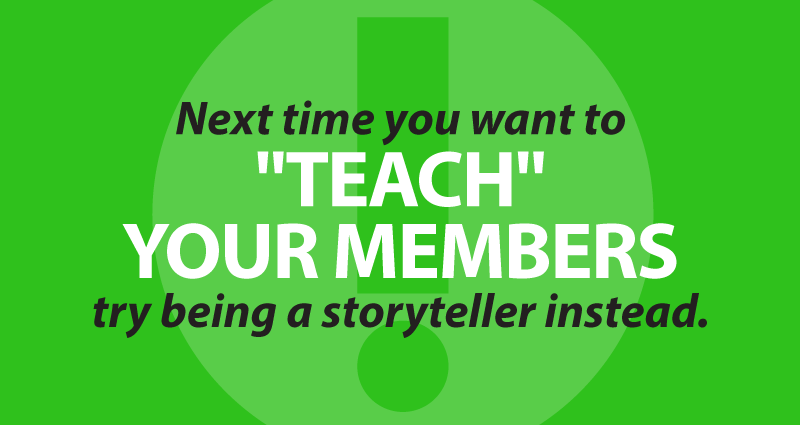
Are you telling stories or storytelling?
 My brother-in-law tended to exaggerate things a bit when he was a kid. From what I hear, there was always some truth behind his tales, but it was the embellishments that made everyone grin and shake their head. His family knew he wasn’t lying, he was “telling stories” – which, of course, isn’t the same thing as storytelling.
My brother-in-law tended to exaggerate things a bit when he was a kid. From what I hear, there was always some truth behind his tales, but it was the embellishments that made everyone grin and shake their head. His family knew he wasn’t lying, he was “telling stories” – which, of course, isn’t the same thing as storytelling.
Sounds the same to you? Maybe it will help to explain the difference.
Storytelling has been with us, since before the written word, as a way to transfer knowledge. Every culture has passed along its history, ethics and values through spoken words, using plots, characters, even a point of view, in order to involve listeners of all age groups. (And because this education takes place in a social setting, with cues as to how to use the information, teachers will tell you it is a very effective way to learn.) Sure, there’s embellishments, and because it is usually live, the stories do change a bit over time, but storytellers generally stick to the plot and keep everything moving to a satisfying conclusion.
“Telling stories,” on the other hand, is more about the embellishments than the story. As long as the facts don’t get in the way, they’re included, but the point is to entertain, not educate.
So what does all this have to do with Marketing?
Great marketing uses stories, because they are emotional, and easy-to-remember.
According to Annette Simmons, author of Whoever Tells the Best Story Wins, “your facts aren’t as powerful as human emotions. Rational thinking is a tool of analysis that stops at the frontal lobes. Stories communicate directly with the old brain, the limbic system, the amygdala, and the other core parts of the brain,…the “feeling” parts of the brain are designed to fast-track responses.”
So the next time you want to “teach” your members, try being a storyteller instead.
Stories are a powerful way to create stronger emotional bonds between your credit union and its members, and pass along information about how you can help.
Just don’t start “telling stories” like my brother-in-law.
- It’s hard not to get caught up in a buzz that surrounds you. - April 9, 2024
- Turn your staff into an Idea Factory. - February 27, 2024
- Move with the future or get left behind - February 6, 2024
